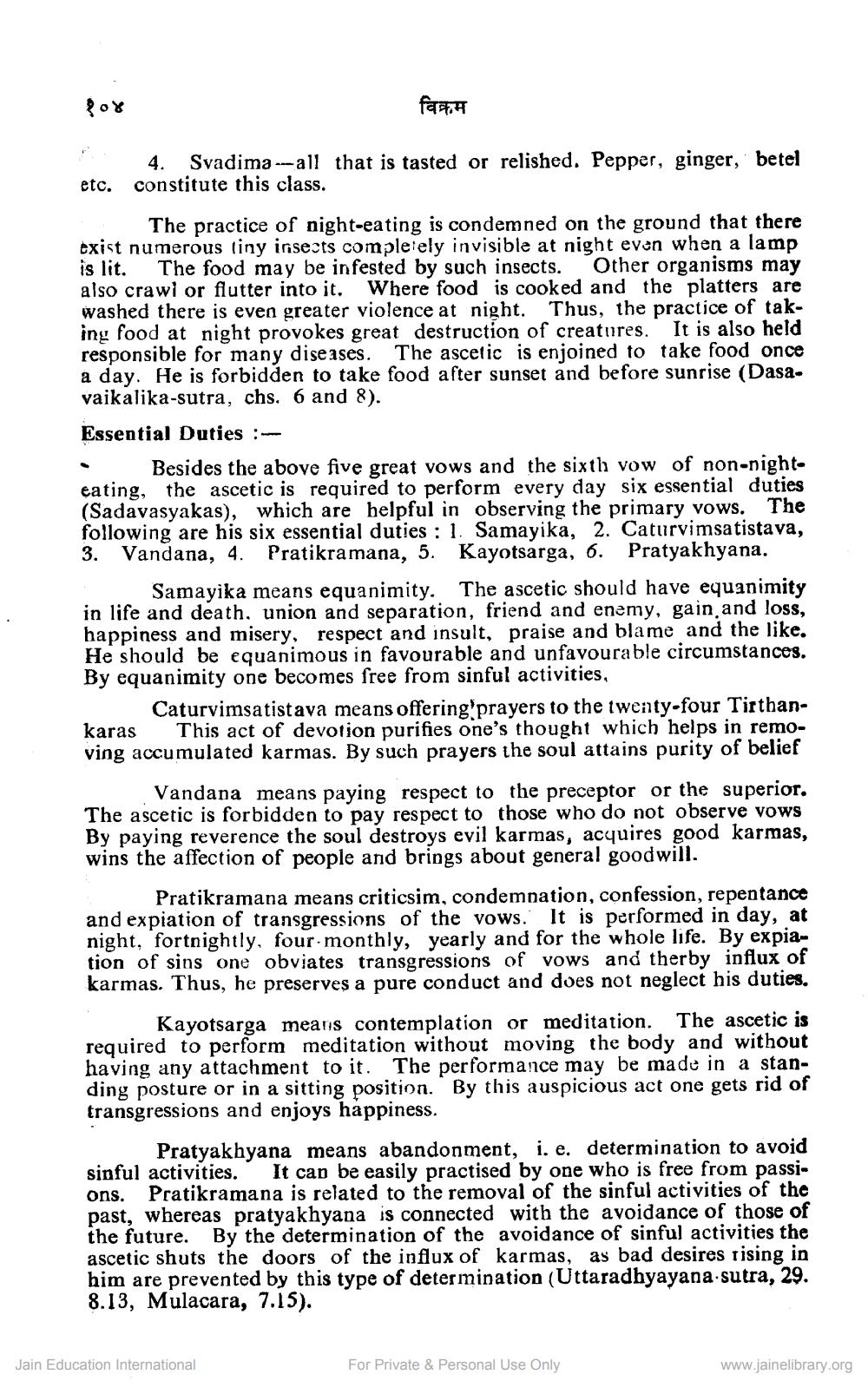________________
१०४
etc.
विक्रम
4. Svadima-all that is tasted or relished. Pepper, ginger, betel constitute this class.
The practice of night-eating is condemned on the ground that there exist numerous tiny insects completely invisible at night even when a lamp is lit. The food may be infested by such insects. Other organisms may also crawl or flutter into it. Where food is cooked and the platters are washed there is even greater violence at night. Thus, the practice of taking food at night provokes great destruction of creatures. It is also held responsible for many diseases. The ascetic is enjoined to take food once a day. He is forbidden to take food after sunset and before sunrise (Dasavaikalika-sutra, chs. 6 and 8).
Essential Duties:
Besides the above five great vows and the sixth vow of non-nighteating, the ascetic is required to perform every day six essential duties (Sadavasyakas), which are helpful in observing the primary vows. The following are his six essential duties: 1. Samayika, 2. Caturvimsatistava, 3. Vandana, 4. Pratikramana, 5. Kayotsarga, 6. Pratyakhyana.
Samayika means equanimity. The ascetic should have equanimity in life and death, union and separation, friend and enemy, gain and loss, happiness and misery, respect and insult, praise and blame and the like. He should be equanimous in favourable and unfavourable circumstances. By equanimity one becomes free from sinful activities,
Caturvimsatistava means offering prayers to the twenty-four Tirthankaras This act of devotion purifies one's thought which helps in removing accumulated karmas. By such prayers the soul attains purity of belief
Vandana means paying respect to the preceptor or the superior. The ascetic is forbidden to pay respect to those who do not observe vows By paying reverence the soul destroys evil karmas, acquires good karmas, wins the affection of people and brings about general goodwill.
Pratikramana means criticsim, condemnation, confession, repentance and expiation of transgressions of the vows. It is performed in day, at night, fortnightly, four monthly, yearly and for the whole life. By expiation of sins one obviates transgressions of vows and therby influx of karmas. Thus, he preserves a pure conduct and does not neglect his duties. The ascetic is required to perform meditation without moving the body and without having any attachment to it. The performance may be made in a standing posture or in a sitting position. By this auspicious act one gets rid of transgressions and enjoys happiness.
Kayotsarga means contemplation or meditation.
ons.
Pratyakhyana means abandonment, i. e. determination to avoid sinful activities. It can be easily practised by one who is free from passiPratikramana is related to the removal of the sinful activities of the past, whereas pratyakhyana is connected with the avoidance of those of the future. By the determination of the avoidance of sinful activities the ascetic shuts the doors of the influx of karmas, as bad desires rising in him are prevented by this type of determination (Uttaradhyayana sutra, 29. 8.13, Mulacara, 7.15).
Jain Education International
For Private & Personal Use Only
www.jainelibrary.org




